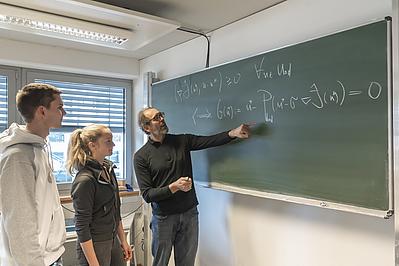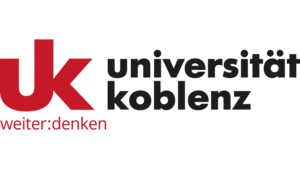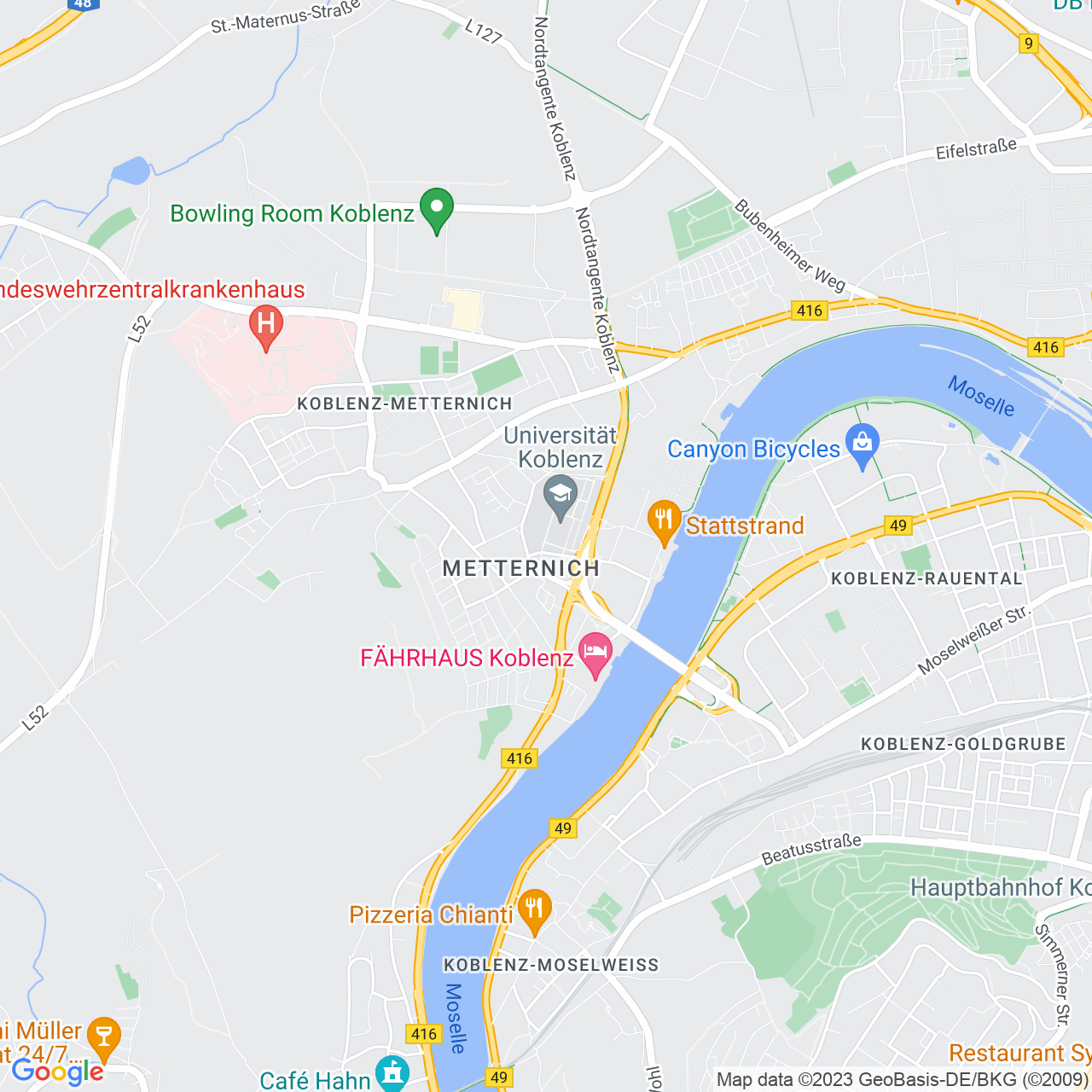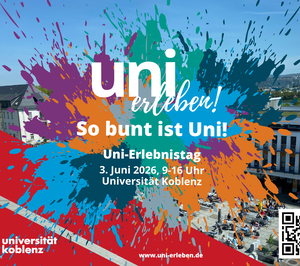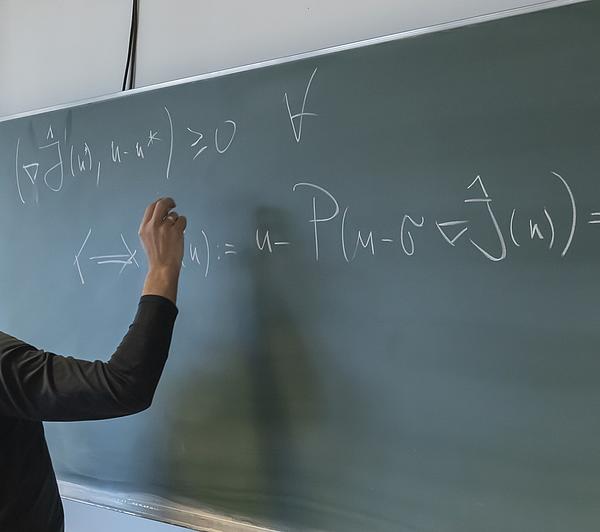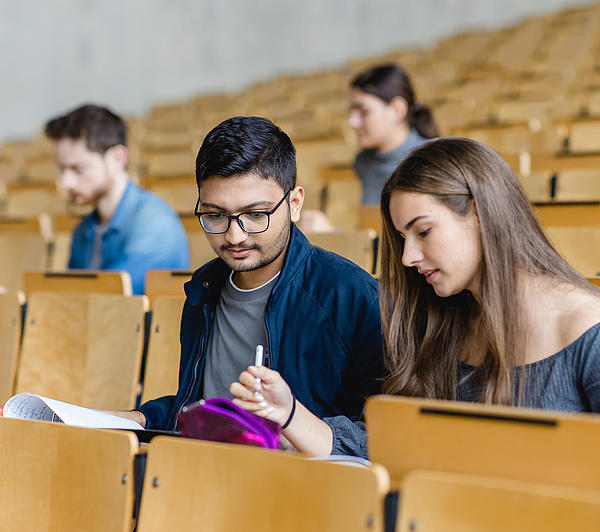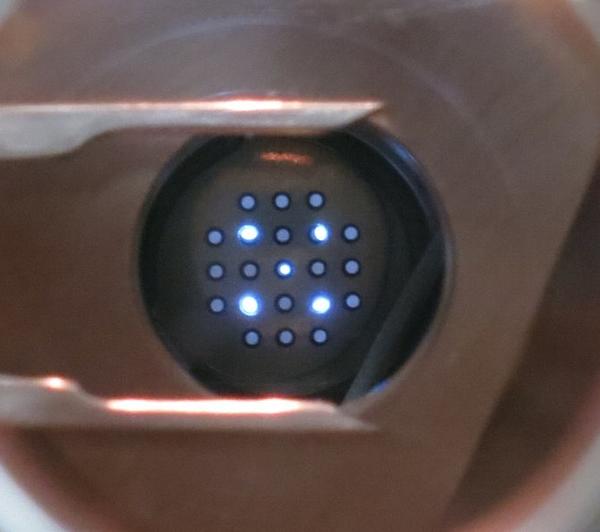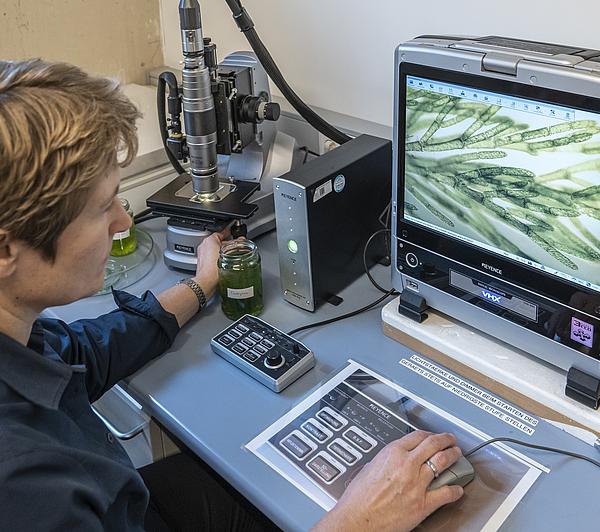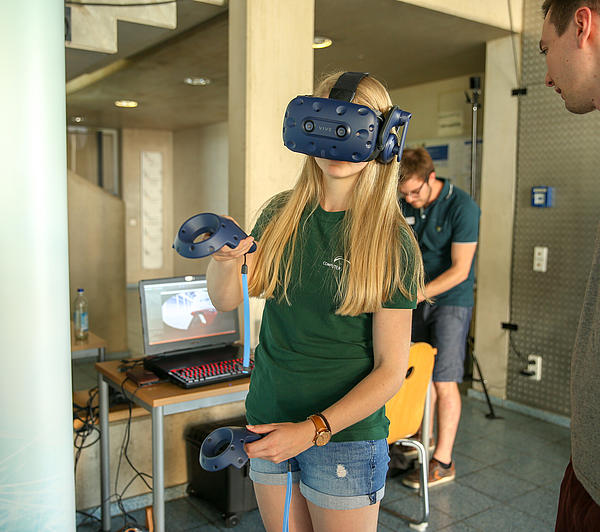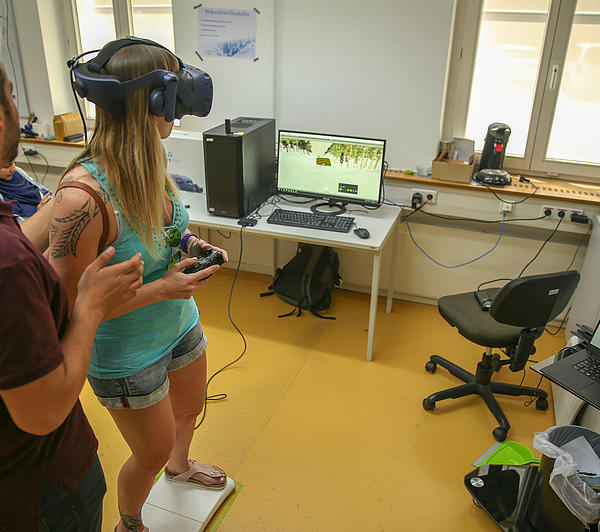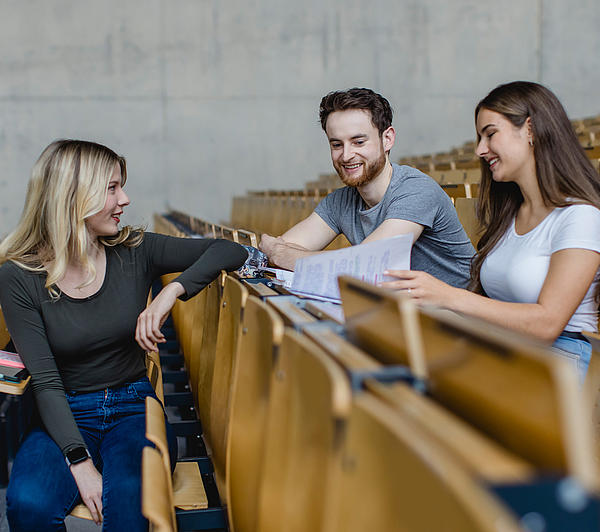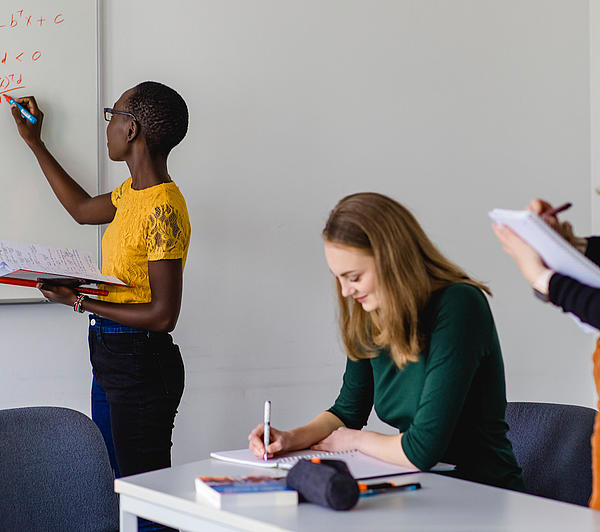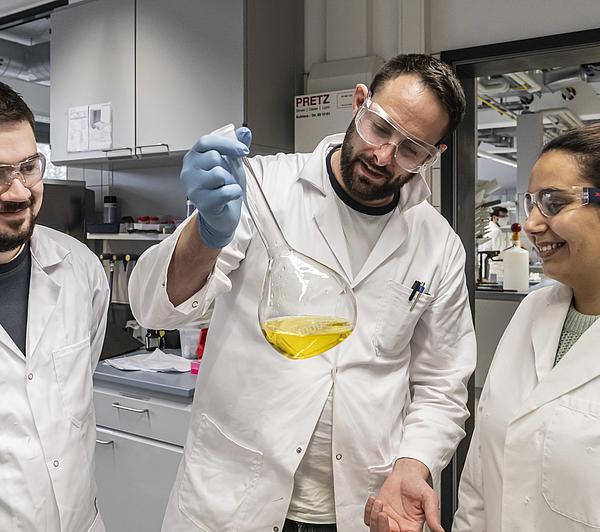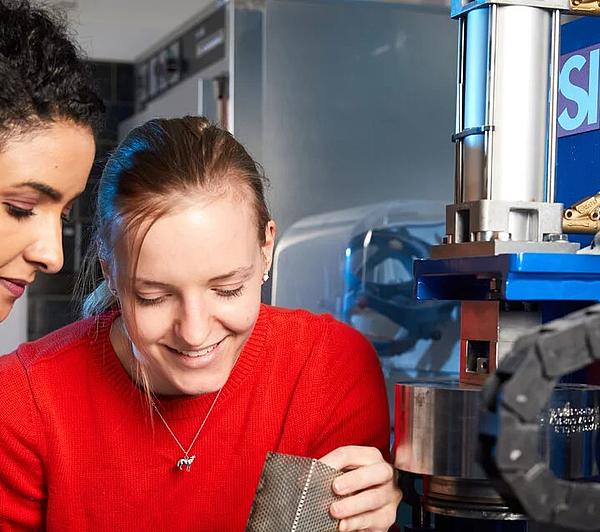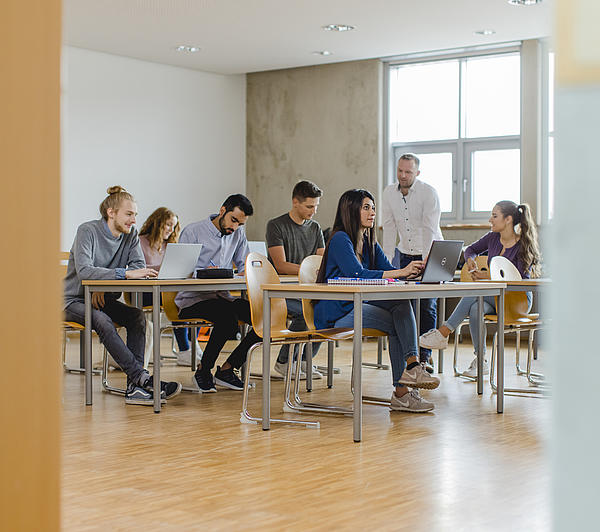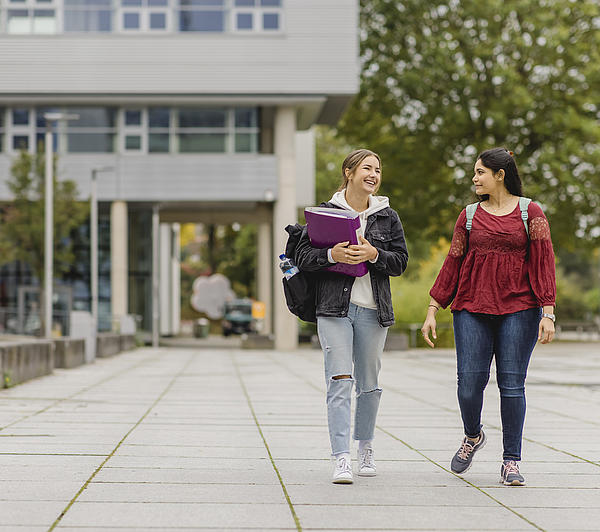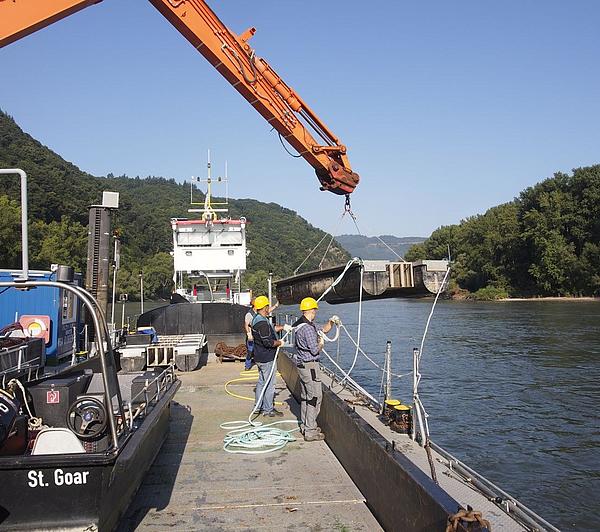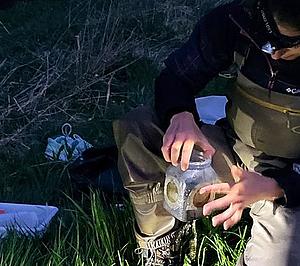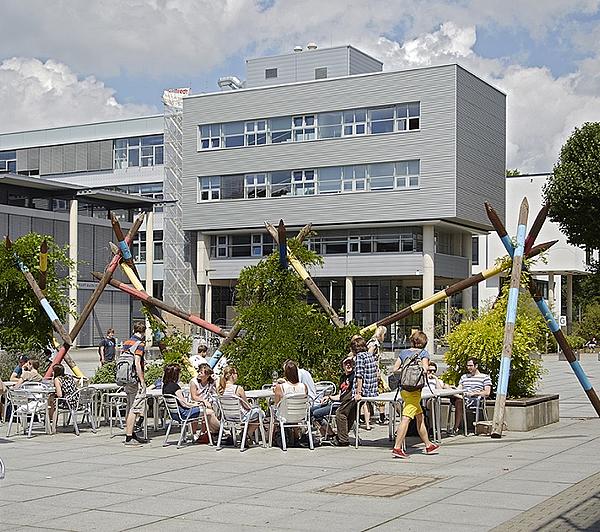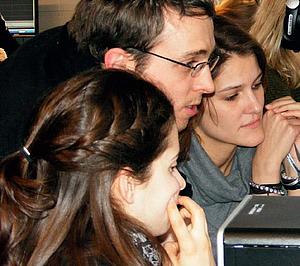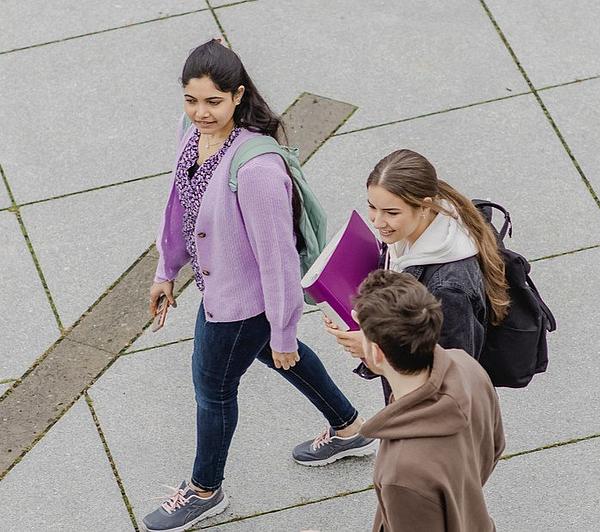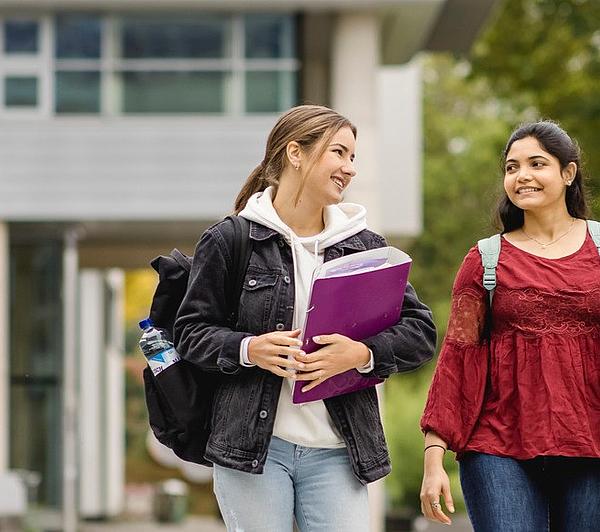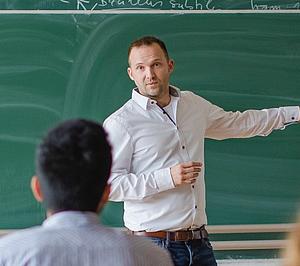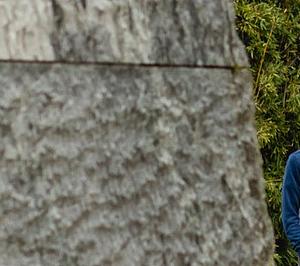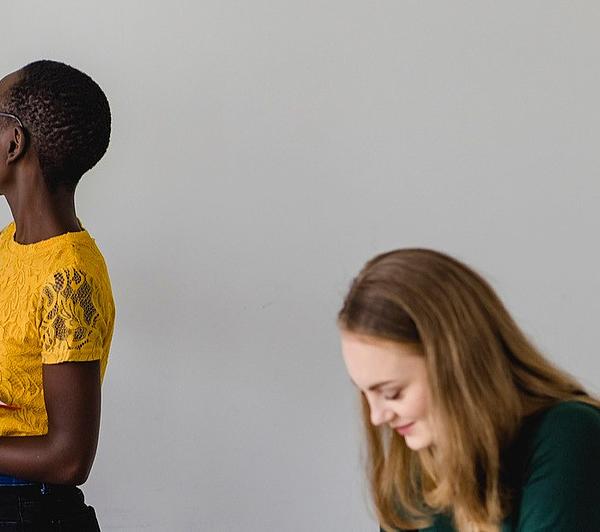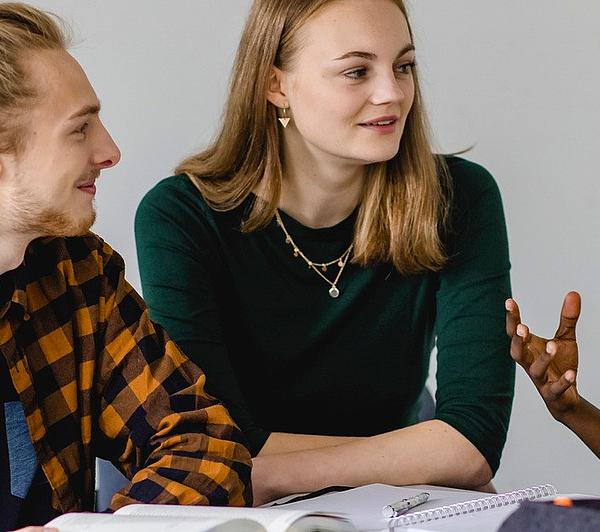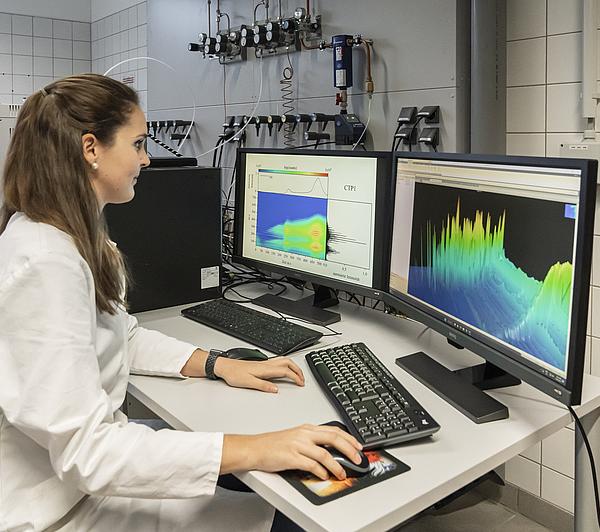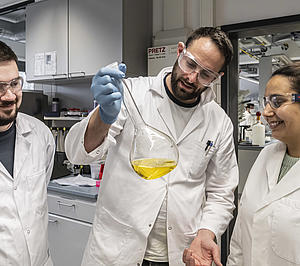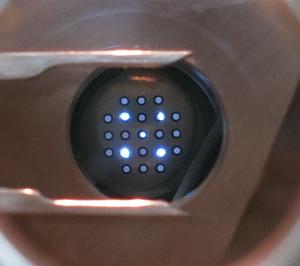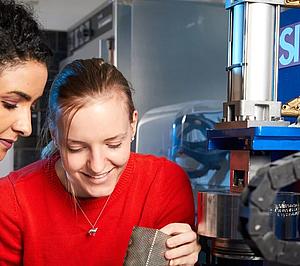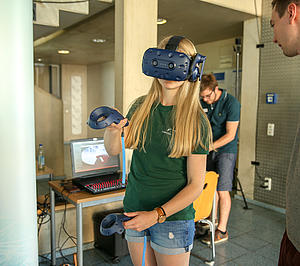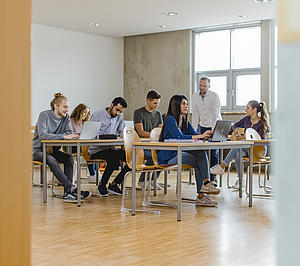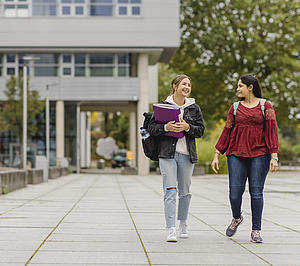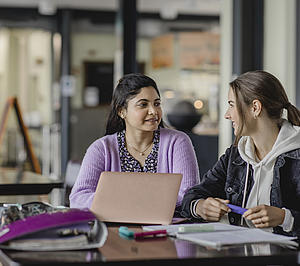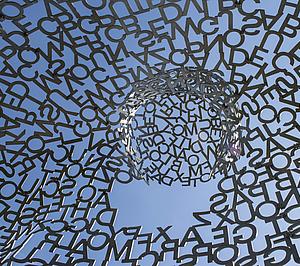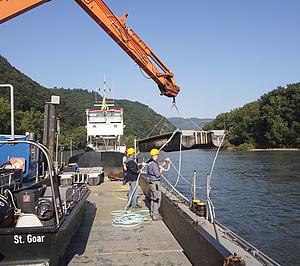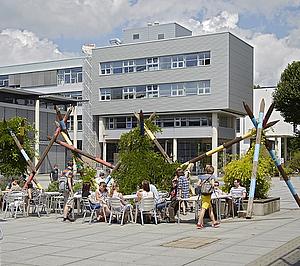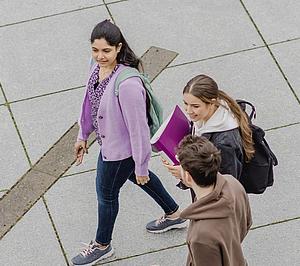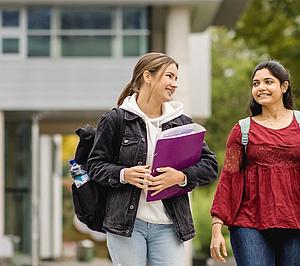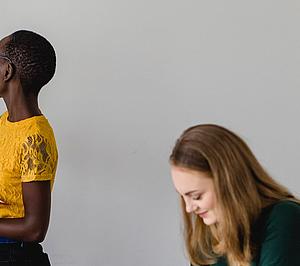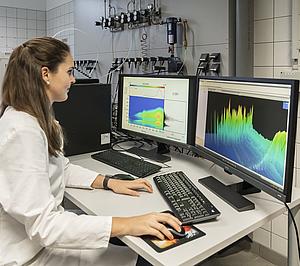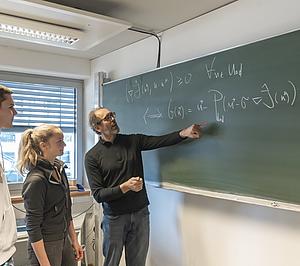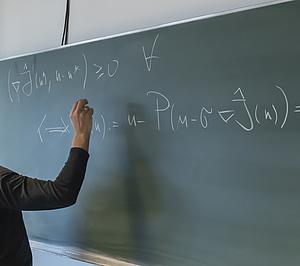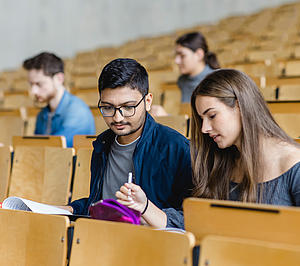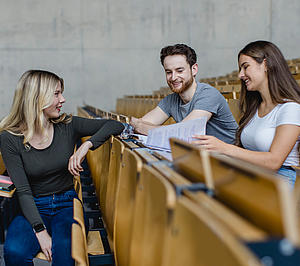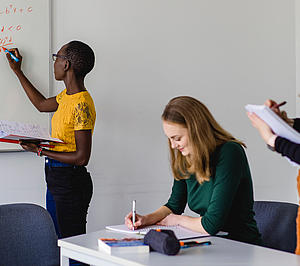Mathematical Modeling, Simulation and Optimization in an internationalized and research Context
The master‘s program “Mathematical Modeling, Simulation and Optimization” (MSc MMSO) is deliberately designed as an English study program as it intends to prepare students for the entry into a highly internationalized working and research field. In addition to lectures on mathematical modeling, simulation and optimization of complex systems, elective modules allow an individual focus. An application- and research-oriented project seminar concludes the study program, in addition to the master‘s thesis. The degree program will qualify you as an expert mastering a repertoire of modern mathematical and computer-aided methods. These methods are flexibly applied in order to solve problems arising in various thematic fields such as engineering, consulting and finance.
Overview
- Winter semester
- Summer semester
- A BSc degree or equivalent in Applied Mathematics, Applied Physics, Computer Science, or a related field
- English language skills that are at least equivalent to Level B2 (equivalent to TOEFL of at least 72 points or IELTS of at least 5.5 points)
Further links
Contents and structure
The two-years M.Sc. program MMSO is the first of its kind in Germany. During the first and second semester, you take courses in applied mathematics, physics, and computer science needed for advanced modeling, simulation and optimization of complex systems. In the third semester, you start focusing on a specific area and subject by choosing from modules of interests. A project seminar reinforces the specialization and prepares for the Master’s thesis in the fourth semester. This thesis is an individual research work which is typically embedded in a larger current research project within the university or in collobaration with external partners.
Study contents overview:
Mathematics; e.g:
- Applied Differential Equations
- Numerics of Partial Differential Equations
- Applied Optimization
Electives in Physics and/or Computer Science; e.g:
- Physics in Applications
- Solid State Physics
- Surface Science
- Machine Learning
- Web Science
- Network Theory
Others; e.g:
- Project seminar
- Master’s thesis
Practical and research orientation:
A key component of the MSc MMSO study program is the project seminar. In this seminar, students will work on current research topics―either individually or in small groups.
These topics may arise from research projects carried out at the university and its affiliated institutes or originate from cooperations with companies. The participants will learn to utilize computing and/or experimental facilities for modeling, analyzing simulations, and optimizing complex systems. Working in peer groups will enable them to practice their teamwork as well as communicative and social skills.
Typically, the problems dealt within the project seminar are the nucleus of the upcoming master‘s thesis.
Prospects
What are the prospects after completing the master’s degree?
Graduates of the MSc program „Mathematical Modeling, Simulation and Optimization“ will be generalists rather than specialists ― with broad knowledge and skills. You will be the versatile and connecting backbone of interdisciplinary teams coping with future challenges. Consequently, interesting positions in major Career prospects Faculty of Mathematics and Natural Sciences companies working in the fields of, e.g. engineering, consulting or finance would be possible career prospects for you.
Alternatively, you have the opportunity to pursue a PhD degree in mathematics, physics or computer science at the University of Koblenz or abroad.
University
The University of Koblenz is one of the youngest universities in Germany. Research, teaching and everyday life at the university campus in Koblenz-Metternich are characterised by short distances and active interdisciplinarity.
The university's claim is "continue discovering". This reflects the incentive and aspiration of all members of the university to constantly scrutinise the familiar in order to gain new insights. To this end, the university offers its members the necessary freedom to further develop their academics and teaching and to break new ground in the transfer of ideas, knowledge and technology.

